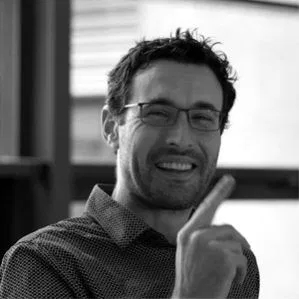Team members’ rationale.
A sustainable plan should include the basic needs of ALL inhabitants, including the focus on ecological quality and growth. Therefore, the relocation plan has to pay attention to the development that takes into account social inclusion, health, climate changes, energy, ecosystem processes, natural resources, etc.
Cities are surrounded by settlements, farmland and nature. In Polyhedra Labs we surround of forward-looking people.
Holger and Rodrigo have more than a decade each in conceptualizing and realizing socially engaged projects that now are crystalizing in eSMART.
Kasia is an experienced data scientist and bioinformatics expert who has been working with organic and health records, including big data, for over ten years. She can work on a team and independently to support a resilient and sustainable future.
As a team, they are setting up a fertile ground for more inclusive farming accessibility in Berlin / Potsdam and their surroundings.
Holger Meier
He studied Architecture at the University of Applied Sciences of Technology and Economics in Dresden with research stays in Brazil and Hungary. Holger has over 15 years of experience in project management and implementation for public and private clients in Germany and abroad and since 2012 he has his own office. During his career, he focused on environmental project management and implementation planning, execution planning, fire protection, site management for clients in the public sector as well as private (Universities, schools, sports facilities, Office buildings, museum, spa hotel, etc.). He is an experienced user of CAD, VOB, AHO, HOAI among others and speaks five European languages.
Holger is passionate about environmental sustainability and Green buildings (green architecture). Currently, he is specialising in bio-architecture to reduce environmental impact and indoor pollution.
Rodrigo Perez Garcia

He is a chemist interested in tangential points of the arts and science, especially within Nanotechnology & Renewable Energy, Interfacial phenomena, Music, Art and Literature. He holds an Erasmus Mundus Masters in Theoretical Chemistry and Computational Modelling (The Netherlands -and Italy) and a PhD in Chemistry from the TU-Berlin. Throughout his life has conducted research residencies in Bristol (UK), Ispra (Italy) and Kyoto (Japan). After working at the Max Planck Institute for Colloids and Interfaces (Germany), Rodrigo followed his passion to facilitate access to healthier and more sustainable food production. As co-founder of Polyhedra (www.polyhedra.eu) and Polyhedra Labs, Rodrigo coordinates and implements multi-disciplinary projects, catalysing connections between local realities and global cultures.
He is convinced that a more equitable world is possible. Let’s harvest the power of community movements and grassroots innovation for cities providing a multi-disciplinary approach to the challenges in food, waste and water.
Kasia Ziolkowska

Kasia, joined Polyhedra Labs as a Volunteer. She is an experienced data scientist and bioinformatist, has been working with organic and health records, including big data for over ten years. She can work on both a team and independently to support a resilient and sustainable future.
